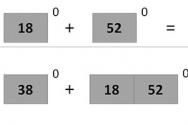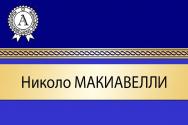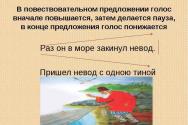Tired of the sun. Who leaked the chairman? Kapkanov Gennady Grigorievich biography
As Kommersant learned, former chief federal inspector for the Rostov region Gennady Kapkanov, who took part in the elections for the mayor of Rostov in 2004, returned to the Don capital. For the previous five years, he worked as deputy mayor of Anapa and Sochi, and recently took the post of deputy general director of Lukoil-Rostovenergo. Already in March, the next mayoral elections will be held in Rostov and local politicians do not rule out that Mr. Kapkanov will take part in them again, but his chances of winning are assessed as low.
A source in the leadership of the Sochi mayor's office told Kommersant that Gennady Kapkanov left the Sochi administration for Lukoil-Rostovenergo. “Kapkanov has not been working for us for three months now,” confirmed the reception office of the Sochi Land Inspectorate. “Gennady Grigorievich is the Deputy General Director for Personnel and General Issues,” they said at the LRE reception.
The mayor's office and the company do not name the reasons for the transition. “So much water has already flowed under the bridge, now hardly anyone will comment on you,” said city press service representative Mikael Nersesyan. “The deputy mayor is a good manager who is valuable both for the public service and for a private company,” Oleg Goryachev, adviser to the general director of LRE, limited himself to explaining.
Gennady Kapkanov worked in the military commissariat of the Rostov region, the presidential administration, and in 2001-2004 he was the chief federal inspector for the Rostov region of the office of the plenipotentiary representative in the Southern Federal District. In the spring of 2004, following Plenipotentiary Envoy Viktor Kazantsev, he resigned from his post. In the spring of 2005 he was appointed deputy mayor of Anapa, in the fall of 2008 - deputy mayor of Sochi. In April, the mayor of Anapa, Anatoly Pakhomov, won the election for mayor of Sochi, forming his new team, appointed Gennady Kapkanov as head of the municipal institution “Land Inspectorate”.
Lukoil-Rostovenergo LLC is 100% owned by Lukoil OJSC, created in 2009 during the reorganization of TGK-8, and is engaged in energy and heat supply to the Rostov region and Dagestan.
Mr. Kapkanov gained the greatest fame in Rostov when he ran for mayor of the city in 2004. He also returned to the Don capital on the eve of the next elections (to be held on March 14, 2010). While serving as chief federal inspector and then becoming an independent candidate for mayor, he harshly criticized the authorities of Rostov and the Rostov region, accusing them, in particular, of creating obstacles to business development in the region and failing to restore order in the city. Gennady Kapkanov’s election campaign was large-scale and expensive (who financed it is not known exactly); many political scientists considered him capable of competing with the current mayor and election favorite Mikhail Chernyshev. However, on the eve of the vote, he withdrew his candidacy and stated that he did not believe in the fair conduct of the elections. According to the voting results, Mikhail Chernyshev again became the mayor of Rostov, ahead of his competitors by a large margin.
A Rostov political scientist who previously worked with Mr. Kapkanov does not rule out that he will nominate his candidacy again, although he estimates his chances of winning as low. “Perhaps he will show up to get some kind of post. He may be supported by the LDPR or A Just Russia, although the latter will most likely nominate Mikhail Emelyanov (State Duma deputy, head of the Rostov regional branch - Kommersant). Perhaps Kapkanov’s return now is just a coincidence,” he says.
“It is possible that Gennady Kapkanov will put forward his candidacy, but there will be little chance; after all, he left Rostov five years ago and is now little known to ordinary voters,” agrees the head of the executive committee of the Rostov branch of United Russia, Yuri Novikov.
A representative of the regional branch of A Just Russia, Evgeny Cherepakhin, said that information about the party’s candidate is still closed in order to protect him as much as possible from pressure.
“If Gennady Kapkanov receives funding or support from a major party, he may go to the polls. I have no information that the LDPR can support him,” says Georgy Babiev, deputy coordinator of the regional branch of the LDPR.
It was not possible to find out the intentions of Gennady Kapkanov himself yesterday - he was busy and could not comment.
Alexander Vorobiev
The council lives according to your arithmetic...
At one time, the head was so thoroughly rooted in his chair that he went, as they say, for familiarity - he tried to drag his daughter into parliament at the last elections. Voters did not appreciate the chairman's focus, and Mamykina Jr. successfully dropped out. Today, if you study the Livadia situation, you can say for sure that the permanent head of the village is rapidly losing his position. The Livadians even have a saying about Mamykin, saying that he seems to be doing something, but he does more harm. The mood of the voters is obvious. His head rating is rather weak - 15% is a stretch - his popularity has faded... And in these elections they are no longer betting on him. This losing position has already been sensed by the main characters the local police corps, who all this time seem to have been successfully overseeing the land chaos in the village. Among them are deputies Gennady Kapkanov and Sergei Ruban, who, as they say, during their tenure formed deputy clans and thus actively lobbied for their own interests.
Everyone has their own shortcomings
As we found out from confidential sources, these gentlemen, making plans for a bright parliamentary future, today are not betting on the hitherto permanent Mamykin. They have oriented themselves well and intend to infiltrate the next parliamentary convocation under the flags of the regionals. Although, as members of the party, they only discredit it.
Gennady Kapkanov was remembered by voters for the fact that he tried to stake out space in Livadia Park for his business instead of those entrepreneurs who have been working there for decades. On this issue, Gena Kapkanov found a common language with the current head of the Livadia housing office, Ivan Potapov. Apparently, this is why the housing office was given the opportunity to earn a living not only with butter, but also with red caviar: with some joy, he was given the right to conclude contracts for entrepreneurial activities - that same off-site trade in Livadia Park. Livadia's parking lots were also given to the housing office. So it’s clear what the friendship between Kapkanov and Potapov is based on.
Let us remind you that it was Livadia among the villages of Greater Yalta in the last elections that took first place in the number of residents who voted for the PR. In this regard, one of the current contenders for the position of mayor of Yalta has corresponding obligations to Gennady Kapkanov. He actively worked with voters during the elections. And as far as KT knows, Genya Kapkanov has been promised the position of deputy mayor for trade.
Strong friendship never ends
Sergei Ruban, who quickly retrained from deputy head of the Yalta Organized Crime Control Department to deputies, was remembered by voters for no less entrepreneurial spirit. At the very beginning of his deputy, he drove a Soviet Volga, but after a couple of village sessions he switched to a Porsche Cayenne. So, by the way, such a car can be purchased for about 1,200,000 hryvnia... Let's try to compare this figure with the average cop salary - about 3 thousand hryvnia. In order to save up the required amount for such an indecently luxurious car, this guy in the prime of his life would have had the opportunity to honestly (we put special emphasis on this word) work in the Organized Crime Control Department for exactly 33 years! That is, somewhere from 8-9 years of age.
Sergei Ruban, who today has a 50/50 rating in the village, according to local residents, is doing a good job of cajoling voters living in house No. 2 in Yunosti Lane (the one next to the Livadia housing cooperative) before the elections. For some reason, the deputy is cajoling only this one house: he repairs the roof, distributes red caviar and other gifts. But he clearly doesn’t have enough red caviar for the rest of his voters’ houses.
Livadia's elected representatives are preparing for the elections as best they can. Initially, Ruban nominated a member of the land commission, Sergei Pershin, to the fresh Livadian head. Kapkanov offered on his head best friend- Deputy Chairman of the Land Commission Alexey Nikitenko, former director of the Golden Beach sanatorium. However, other serious players are appearing on the Livadia arena today. In the last elections, very strong candidates were nominated from public organization“Our Home Livadia”, which successfully consolidates the forces of the community and helps the residents of Livadia fight lawlessness local authorities. And in these elections, Livadians hope that the time-tested organization will nominate candidates for the post of village head. Local residents associate their hopes that at least something will move forward in Livadia in a quarter of a century with fresh forces that have not yet become bogged down in corruption... And these sentiments in the village cannot be ignored...
It was they who pushed Ruban and Kapkanov to change their plans. Longtime associates decided to nominate the former law enforcement officer, Ruban.
Against this background, only one question arises: what kind of cooperation can there be and what common interests between Mr. Kapkanov and Mr. Ruban?! It is paradoxical that a person who is supposed to defend the law, as they say, sang and made a deal with a businessman with a dubious past and present. Or in parliament, as in a bathhouse, are everyone equal?..
The leaders of Lukoil-Rostovenergo, Alexey Samodurov and Gennady Kapkanov, do not want to sell steam from the Volgodonsk CHPP-2 to the amino acid production enterprise under construction, preferring that it go into the sky
Speaking with the annual Address to the Federal Assembly, the President Russian Federation Vladimir Putin said: “Russia will be open to the world, to cooperation, to attract foreign investment, to implement joint projects. But most importantly, we must understand that our development depends, first of all, on ourselves. We will achieve success if we ourselves earn our well-being and prosperity, and do not rely on a successful combination of circumstances or external conditions. If we cope with disorganization and irresponsibility, with the habit of “burying execution in papers” decisions made. I want everyone to understand: in the current conditions, this is not just a hindrance to Russia’s development, it is a direct threat to its security.”
It is about “brakes on the path of development” that we will talk about in this article. Specifically: about the brakes in the Rostov region and its city of Volgodonsk, here these brakes are derailing a promising innovative construction project - an enterprise for deep grain processing, which has never existed in Russia before...
Oh, how well it all started!
To say that the strong point of the Rostov region is the agricultural sector is to say nothing. This is, if not three whales, then certainly one of the whales. On the Don land, even the geographical names of settlements are “edible”: Zernograd, Kormovoe, Pirozhok, Vegetable, Maslov, Grushevskaya, Rybinsky... On the Don they proudly recall that, within the framework of the international agricultural exhibition “Green Week 2013” in Berlin, the Rostov region signed agreements on cooperation and implementation of investment projects more than all regions of the Russian Federation, and one of the most significant is the trilateral agreement between the Government of the Rostov region, the companies Evonik Industries and DonBioTech with an investment volume of 170 million euros (6.75 billion rubles) on the project under construction near the Volgodonsk complex for deep processing of grain for the production of amino acids with a capacity of 250 thousand tons of grain per year.

This is a unique enterprise for Russia. Its significance is evidenced even by the fact that the agreement was signed at the Russian Embassy in Germany in the presence of Russian Minister of Agriculture Nikolai Fedorov and German Minister of Food, Agriculture and Consumer Protection Ilse Aigner.
The beginning was businesslike: a year and a half ago, in July 2013, the first stone of the plant was laid in the city of Volgodonsk, which was planned to be built in two years with the assistance of the German biochemical giant Evonik Industrie “Russian Agro-Industrial Trust” under the leadership of Vadim Varshavsky and the regional authorities. In fact, the arrival of new German technologies allowed the Rostov region to get rid of import dependence in the field of animal feed. In recent years, livestock and poultry enterprises, large pig farms, the largest in Eastern Europe production of turkey meat, a number of enterprises for the production of chicken meat, a complex for raising ducks, etc.
But the Rostov region, which annually produces up to 8 million tons of grain, of this amount itself processes no more than 15 percent, while experiencing an urgent need for imported grain processing products: compound feed, gluten - and especially amino acids that stimulate livestock weight gain without disrupting normal hormonal development . First of all, such an amino acid is L-lysine - both in Soviet times and now, purchased abroad for a lot of money, since our country does not have its own production of this type. Today, Russia imports over 40 thousand tons of lysine per year from abroad, but experts believe that the volume of the Russian market will grow to 100 thousand tons annually in the next five years.
And now the Russian Agro-Industrial Trust has managed to find a partner in the German biochemical company Evonik Industrie to build an enterprise in the Rostov region for the deep processing of grain and the production of amino acids. Moreover, a partner with his own unique development for the production of lysine under the Biolis brand. The Don Biotechnologies (DonBioTech) company, established specifically for this project, was to master its production in Russia at a new enterprise. The new enterprise near Volgodonsk was planned to produce 85 thousand tons of Biolis lysine, 19.4 thousand tons of gluten, 11.5 thousand tons of starch and 95 thousand tons of bran per year, which would not only provide the Volgograd region with these products, but also help the agro-industrial complex in many regions of Russia. Moreover, after the commissioning of the first stage of production, the investor promised to invest about 9 billion rubles in the Don economy and create at least 300 new jobs.
That is, in the city of Volgodonsk, the very policy of import substitution, which, as emphasized in the President’s Address to the Federal Assembly, was to “provide people with high-quality and affordable medicines and food products, largely, of course, of their own production,” was actually implemented.
Such construction became a driving force for the economy of the Rostov region, since in the future more than 400 million rubles in tax deductions were expected to be paid to the budgets of various levels.
In Rostov-on-Don, the heart of the Don land, this was understood. The construction was immediately included in the list of “100 governor’s projects,” which is tantamount to its support under the personal supervision of the leadership of the Rostov region. The authorities promised to subsidize interest rate for loans attracted by investors, compensate for the costs of technical connection to utility networks, and also guarantee reimbursement of half the costs of gasification and energy of the project. And what speeches there were!
“For the Rostov region, which is one of the Russian leaders in the production and export of grain, the construction of facilities for its deep processing opens up new opportunities,” Governor Vasily Golubev commented on the situation to reporters. . — High-tech processing of raw materials is beneficial not only for business, but also for the region’s budget.”
In a word, in the words of the Message of President V.V. Putin to the Federal Assembly, the region was ready to “create new technologies and competitive products”!
Heirs of Dmitry Donskoy, or go to the feeding place?
As the reader guesses, the cast lines of the President’s Address to the Federal Assembly are one thing, but the desire to “feed” on a multibillion-dollar project is completely different. Therefore, the song about “removing critical dependence on foreign technologies and industrial products” has not yet taken shape in the Rostov region!
After all, as President V.V. poses the question in his Address. Putin: " Import substitution programs should work to create a mass layer of manufacturing companies in Russia, capable of being competitive... It is necessary to remove... restrictions as much as possible. Create a real investment elevator for such companies, so that they grow, significantly increased their capitalization and production volumes, gained a foothold in foreign markets" The President even instructed the Agency for Strategic Initiatives, together with VEB, RDIF, and other development institutions, to develop such a program and subsequently implement the first pilot project to support non-resource companies in Russia.
But in Volgodonsk, a similar project at the very first steps stumbled over the position of Lukoil-Rostovenergo, which owns the main source of energy resources here - the Volgodonsk CHPP-2. At first, the managers of the thermal power plant seemed to welcome DonBioTech's plans to buy steam obtained during the production of electricity for their plant from CHPP-2 - after all, it was not used and went into the sky. Residents of Volgodonsk wrote on the Internet that it would be better not to waste steam and “make noise throughout the whole city,” but to give the opportunity for the speedy construction of a new plant.
And the energy industry seemed to give such an opportunity, especially since it itself allowed them the opportunity to make their production waste-free. Technical Director of VTS "TTK Lukoil branch in Rostov-on-Don" V.V. Svirid wrote in his letter that “the technical possibility of connecting the facility planned for development is available, the heating capacity is not limited, and the connection fee will be paid after the conclusion of the connection agreement.”
However, this position took place only until, figuratively speaking, the bird, that is, the investor, got its claw stuck in the project. Without such an energy source as CHPP-2 near Volgodonsk, investors could choose the site of the future plant elsewhere, not necessarily even in the Rostov region - but, for example, in Krasnodar region, where, according to the director of the Rostov representative office of IFC Solid, Igor Zahidov, investors quickly “manage to negotiate” with power engineers in problematic situations.
But the fact of the matter is that during the period of choosing a site for an innovative construction project, as eyewitnesses put it, “Lukoil was filled with the nightingale!” and immediately issued a letter from a subsidiary about the availability of unlimited steam capacity from CHPP-2. As a result, in 2012-2013. DonBioTech acquired several land plots near Volgodonsk for the construction of a complex for deep grain processing to produce amino acids, began construction of the plant, and Rosselkhozbank opened a credit line for the investor for 167 million euros. That is, drawing a historical parallel with the Battle of Kulikovo, which, according to the chronicles, took place on the Don, the investor, having chosen a construction site, burned the bridges to retreat behind him...

And here, already during the implementation of the project, they presented it to him! Deputy general director of the Lukoil-Rostovenergo company, Gennady Kapkanov, just for CONNECTING the plant to the thermal capacities of the Volgodonskaya CHPP, gave DonBioTech a contact for the tidy sum of 280 million rubles. + VAT. More than half of this amount, i.e. 150 million rubles was the cost of ISSUING CONDITIONS for technical connection. And this despite the fact that, according to the Decree of the Government of the Russian Federation of April 16, 2012 No. 307, the issuance of conditions for connection is free of charge!
Naturally, the taken aback investors went for an explanation to Kapkanov’s manager, General Director of Lukoil-Rostovenergo LLC Alexey Samodurov. But he was adamant. And the torment began, as a result of which the previously promising project “froze” and its implementation began to be removed...
Based on DonBioTech's complaint about the price set by energy workers, the Regional Tariff Service (RST) fined Mr. Samodurov's company for arbitrariness, but he turned out to have a strong position in the region - and the fine was protested. Contrary to previous assurances about the availability of unlimited steam capacity of CHPP-2, the general director of Lukoil-Rostovenergo began to declare that the enterprise does not have the “technical ability” to supply steam to the plant under construction and even involved a prosecutor to put pressure on the management of DonBioTech...
As sad as it is to admit this, the harmonious structure of import substitution, which was emphasized in the Address of the President of the country to the Federal Assembly, after such actions, you will agree, somehow does not take shape in a single Rostov region. Vladimir Putin says that the products of our suppliers must meet strict conditions both in terms of quality and price, and points out: “... Internal monopolism should not be allowed either.”. As the president of the country looked into the water: as it turned out, we have a real problem with domestic monopolism...
Take the same LLC Lukoil-Rostovenergo, which certainly has key positions in energy supply in the region - well, where can investors get away from them? For example, one of the companies started building a new five-star Hyatt hotel in Rostov-on-Don. Here, perhaps, as in the case of the DonBioTech plant, the factor was not taken into account that the matter was started on Don soil, where Dmitry Donskoy first applied the experience of luring the enemy deep into his positions into the territory of a guard regiment while an ambush the regiment was hidden in an oak grove for the decisive victory... Probably, in the Lukoil-Rostovenergo company there are also imitators of Dmitry Donskoy, since they hit the hotel builders with the statement that the power engineers were not able to fulfill their previously assumed obligations. And they offered to conclude a new contract - 4 times increased in cost! Since investors were already bogged down in the construction of an expensive hotel, in response to blackmail they could only negotiate new, but less stringent conditions: the cost of energy was increased two and a half times...
Moreover, apparently, the power engineers on the Don soil operating according to the method of Prince Donskoy are helped not by one ambush regiment, but by a whole army of different ambushes. For a bribe or out of love for justice - this is an open question! But where someone doing the job appears - or even “one with a fry”, “seven with a spoon” immediately appear...
An investor doesn't need a knife
Since “DonBioTech” desperately did not want to pay the power engineers 150 million rubles for a healthy life, despite all the pressures, the head of the power engineers, Mr. Samodurov, not only broke the contract with the enterprise, which had already begun building a plant right next to CHPP-2, but through the arbitration the court tried to deprive the DonBioTech company of land plots. The logic here was purely “geographical”: Lukoil-Rostovenergo could be forced (!) to enter into an agreement with a new enterprise near the thermal power plant, which would violate its rights. The court, of course, did not heed this logic.
Then there was a statement from Samodurov to the police that the leaders of DonBioTech illegally obtained a construction permit by submitting to the State Autonomous Institution of the Rostov Region “State Expertise of Project Documentation and Engineering Research Results” of unknown origin something that was presented as a document. The head of Lukoil-Rostovenergo attached this document, taken from somewhere unknown, to his complaint. Scandalous articles about the forgery immediately appeared in the press.
At this stage, any investor would fall over his head and sign any kind of agreement with the energy sector, otherwise they would get him by hard knocks. But DonBioTech did not give up. And for the investor - the hope of the region - the “police stage” began!
On June 21, 2014, after it became clear that Samodurov’s information did not correspond to reality, the investigative department for the city of Volgodonsk of the Investigative Committee of the Russian Federation for the Rostov Region stopped the inspection. According to Samodurov’s repeated similar statement in OP-2 My Ministry of Internal Affairs of Russia “Volgodonskoe”, investigator Bushueva O.P. On August 16, 2014, she issued a decision to refuse to initiate a criminal case due to the absence of a crime. Then the power engineers connected... no, not steam to the plant, but the acting deputy prosecutor of Volgodonsk! Three days later, he already gave instructions to continue the criminal prosecution of employees of Don Biotechnologies LLC. The inspection material was confiscated from investigator Bushuyeva and handed over to the more zealous police lieutenant A.S. Bondarev.
In September 2014, searches, seizures of documents and interrogations were carried out at DonBioTech LLC. Head of Security Service I.V. Zhikhortsev, for example, was interrogated 7 times! And although the investigative actions only confirmed the absence of a crime according to the statement of the general director of Lukoil-Rostovenergo LLC, Samodurov himself was never interrogated on the circumstances of the appearance of a falsified document in his possession and the possible involvement of employees of Lukoil-Rostovenergo LLC in its production.
The criminal case reached all the way to Moscow, but the Ministry of Internal Affairs of the Russian Federation also found no grounds for criminal prosecution of employees of Don Biotechnologies LLC. The case was returned to Volgodonk to a new investigator, although written instructions to terminate the criminal case suddenly disappeared from his materials. On January 17, 2015, the inquiry period expired, but the Volgodonsk prosecutor’s office extended it again...
Returning to Dmitry Donskoy, let us remember that in Mamaev's massacre(this is also the name of the bloody Battle of Kulikovo) his army had not only a regiment of the “right hand”, but a “regiment of the left hand”. So, in addition to the police and the prosecutor’s office, the tax authorities of the Interdistrict Inspectorate of the Federal Tax Service No. 4 for the Rostov region showed unprecedented activity towards the DonBioTech LLC company: 5 inspections of the territory were carried out, 9 employees were interrogated, 19 demands were made for the provision of documents and information. During the same period, Federal Tax Service No. 4 initiated a delay in VAT reimbursement, which is extremely important for the Company during construction, since these amounts are part of the budget agreed upon with the credit institution (Rosselkhozbank) financing the project.
Isn’t it the same actions that were carried out by Federal Tax Service No. 4 that Vladimir Putin had in mind in his Address to the Federal Assembly? Here are his words: « This is not the first time we have spoken about the need for new approaches to the work of supervisory authorities., control, law enforcement agencies... By— accusatory bias still dominates. Instead of stopping individual violations, closing the road, create problems for thousands of law-abiding people, proactive citizens. We need to remove restrictions on business as much as possible, relieve him of obsessive supervision and control. I said: namely obsessive supervision and control..."
Stop throwing steam into the air!
It is possible that the management of DonBioTech, perhaps, already regrets that they did not give 150 million rubles to “feed” power engineers and others like them - now, in order to provide the technological process with the necessary amount of steam, they are exploring the option of building their own boiler house in partnership with Gazprom " And this, according to preliminary estimates, will lead to an increase in the cost of the project by 800-900 million rubles and will significantly delay the launch of the plant. I wonder if the German concern Evonik Industries would have given its consent again to the construction of a plant in the Rostov region if they had known what awaited them there - endless ambushes and attacks from the left and right flanks from energy workers, the prosecutor's office, and tax authorities?
Naturally, the alarmed German partners, after what happened, went “to get the truth” to Moscow - to the head office of Lukoil. There they secured a meeting with the concern’s vice president for energy, Denis Dolgov. But he, apparently, had no time for the Germans and no time for the problems of import substitution in the country. At that time, the media were only discussing the divorce of the Lukoil top manager from his wife Oksana, who claimed that her husband was beating her and wanted to put her in a psychiatric hospital so as not to divide the “family” money of $500 million.
“Well, what about the authorities of the Rostov region?” - you ask. Something didn’t work out for them with manual control of the project. When the leaders of Lukoil-Rostovenergo stood up and announced that there was no steam, at the request of DonBioTech, the mayor of Volgodonsk issued a resolution to audit the available capacity at CHPP-2. But the commission he created was never allowed into the station.
Meanwhile, on the Internet, people watching how the promising project of the Volgodonsk complex flows into long-term construction, like excess steam from a thermal power plant into the air above Volgodonsk, see to the root about the position of the management of the owner of the thermal power plant - Lukoil-Rostovenergo LLC: “In due time through the purchase of shares of TGCs they squeezed all the thermal power plants into their pockets. And now they dictate their own price tags to everyone. Why do we need such an energy supply organization that does not want to act within the framework of the overall development of the country and the interests of the Rostov region?”
The voice of the people in this case completely coincides with the position of the president of the country, which he expressed in the same Address to the Federal Assembly: “ Relations between business and government should be built on a philosophy of common cause, on partnership and equal dialogue" In this formula, every word is in place; the rule of the sum remaining unchanged when rearranging the terms does not work here - the philosophy of the common cause is primary! That is, building an innovative economy!
Now experts monitoring the situation say that the government of the Rostov region should once again bring all interested parties to the negotiating table and move the common cause forward so that the investor gets the desired steam, and the Volgodonsk CHPP-2 works using waste-free technology, but did not warm the air. Similar efforts were previously made by the authorities, but now the time is coming for decisions, not persuasion from those who now consider previously national property to be purely personal. This position of the “owners” does not suit the state in any way. And it has every right to ask what is happening in agriculture When land is used carelessly, how effectively do these “owners” manage the property that falls into their hands?
If we continue the historical parallels of the times of overcoming the feudal fragmentation of Rus', then today we are observing an obvious situation: every small “energy” or other regional prince almost always has his own selfish interest that does not coincide with the general one. After the Battle of Kulikovo, as is known, the nascent Rus' was forced to crush all the private princely interests under itself, otherwise there would be no way to survive. How those who “slowed down” the process were dealt with can be read in encyclopedias.
In his Address to the Federal Assembly, Vladimir Putin described reasonable import substitution as “our long-term priority, regardless of external circumstances.” And if the Rostov authorities really want to follow the current policy of the head of state, they must put an end to the priorities of the tyrants and traps in their region.
On February 26, after 21.00, Judge Elena Shevskaya of the Oktyabrsky District Court of Poltava, at the request of the regional prosecutor's office, read out a resolution on the selection of a preventive measure for the world-famous cybercriminal 35-year-old Gennady Kapkanov, who was arrested the day before in Kyiv.The detainee will spend the next two months in a pre-trial detention center. Due to the fact that the man committed a particularly serious crime - an attack on the life of law enforcement officers, and because he had been hiding from justice for 15 months, the issue of posting bail was not even considered.
His relatives and numerous friends came to support Gennady. Everyone was prepared for this outcome of events - things and food for the detainee were brought into the conference room. “Well, now everything is more or less certain, the main thing is that you are alive and well,” his comrades encouraged the defendant. And he didn’t show much concern about his future fate. And he didn’t admit guilt.
Let us remind you that Poltava resident Gennady Kapkanov, according to Europol, is one of the organizers. He is suspected of 1,152 cybercrimes committed in 180 countries. The criminal group he was part of controlled 500 thousand infected computers in 180 countries. Financial losses from its activities can reach hundreds of millions of euros.
[Gazeta.ua, 12/11/2017, “The FBI and Interpol have been looking for a Poltava resident for 8 years”: Gennady Kapkanov is suspected of organizing the international cyber gang “Avalanche”, which caused damage to 500 thousand computers in 180 countries. $100 million worth of damage was caused. The investigation into the activities of the criminals lasted 7 years. - Insert K.ru]
The investigation into Kapkanov’s case is being conducted by the prosecutor’s office of the German city of Ferden. German investigators established that the international criminal group of which he was a member distributed the URLZone Trojan malware to banking institutions, penetrating computers under the guise of legitimate software. Using this virus, which has flexible camouflage capabilities, scammers stole money from bank accounts or user accounts of online payment systems. The criminals used the stolen details to carry out transactions, in other words, to transfer money to accounts under their control, and the banking security system did not “see” the deception. Using the data obtained in this way, attackers could check the level of depletion of other people's accounts. Meanwhile, real bank account holders were kept in the dark about their actual financial status, since URLZone could mask transactions made by fraudsters. That is, to show amounts of money that no longer exist.
The first such fraudulent actions were carried out by Kapkanov in April 2012. Five months later, cybersecurity experts determined that the main center for launching viruses was located in Ukraine.
On November 30, 2016, the National Police, together with the Prosecutor General’s Office and the cyber police, conducted a special operation to detain Gennady Kapkanov. Members of the special forces unit of the National Police KORD were involved in his capture. The special operation to capture members of an international organized crime group, which was coordinated from the main office of Europol in The Hague and in which Europol and the FSB were involved, simultaneously involved 180 operatives in 30 countries. Australia, Austria, Azerbaijan, Armenia, Belgium, Belize, Bulgaria, Hungary, Germany, Gibraltar, India, Italy, Canada, Colombia, Lithuania, Luxembourg, Moldova, the Netherlands, Norway, Poland, Romania, Singapore, were involved in the international special operation. United Kingdom, United States of America, Taiwan, Ukraine, Finland, France, Montenegro, Sweden. During the joint operation, five organizers of the network were detained. Three of them are Ukrainians, one of them lived in Germany, two more lived on the territory of Ukraine. Law enforcement officers then stopped the activities of more than 220 servers affected by the virus, and also blocked 800 thousand domains. Searches were carried out in almost 40 premises, and several dozen servers were seized.
Computer equipment, flash drives, hard drives, directional Wi-Fi antennas, Cell phones, SIM cards of Ukrainian and foreign mobile operators, financial documentation, Ukrainian and foreign bank cards, several passports in his name and about 72 thousand dollars.
When detained, the suspect in high-profile crimes resisted. When law enforcement officers knocked on his door asking him to open it, he shot twice at the door with a Kalashnikov assault rifle (he now explains that he was afraid for his life). Only by serendipity then no one from the capture group died. It’s just that one of the bullets got stuck in the door, and the other in the wall of the corridor. Gennady tried to escape from the police through the balcony, climbing along the ledge into the next room. But he was detained and taken to the Oktyabrsky District Court. Prosecutor of the Prosecutor General's Office Arseniy Semich petitioned the court to temporarily arrest the suspect for 40 days, arguing that he was involved in an international case and should be extradited to another country. By the way, in Germany, Kapkanov, according to the charges brought against him, faces 10 years in prison. However, judge Larisa Kuleshova refused to arrest the suspect, citing the fact that the Prosecutor General's Office allegedly violated certain procedural requirements.
Since then, Gennady Kapkanov has not been seen in Poltava. But he was put on the international wanted list, and, 15 months later, he was detained in Kyiv. When choosing a preventive measure, he explained to the court that he had not traveled anywhere outside of Ukraine and had been traveling all this time - he lived in Kyiv, Lvov, Vinnitsa, moving around the expanses of the country on hitchhikers and buses. According to him, he did not communicate with his relatives and did not know that he was charged with an attempt on the life of law enforcement officers.
All this time, Kapkanov lived on a fake passport - during his arrest, a passport with a different surname with his photo pasted in was confiscated. “I don’t know how I got it and I’ve never used it. This is generally a souvenir,” he explained to the court.
[IA "RBC-Ukraine", 02/27/2018, "The court chose a preventive measure for the suspect in organizing the Avalanche cyber network": Judging by what was published in message press secretary of the Ministry of Internal Affairs photo, Kapkanov was hiding under the name Zhadan Vadim Anatolyevich. [...]
During his arrest, he was found to have a Ukrainian passport in the name of another person, which was used by the hacker to arrive in the capital. - Insert K.ru]
What he was doing all this time is unknown. He claims to have conducted business as a private entrepreneur, namely, to rent out real estate owned by his mother. Although he clearly did not live on these funds - during a search, an impressive amount of money was confiscated from him.
In general, the defense strategy of the world-famous cyber fraudster looked unconvincing and even funny.
For attempted murder of a law enforcement officer in connection with the performance of his official duties, which Gennady Kapknov is now charged with, he could be sent to prison for a term of 9 to 15 years or forever. So far, no one can say whether the two criminal cases in which he is involved will be combined into one.
Original of this material© dw.com, 02/15/2017, Photo: AIN.ua
The Avalanche hacker case and its Ukrainian trace
Dmitry Kanevsky
The case of the international hacker network Avalanche, several of whose alleged participants were detained in Ukraine, is gaining momentum. DW looked into this high-profile story.
This was one of the most high-profile anti-hacking operations recent years: at the end of November 2016, after a lengthy investigation, law enforcement officials from a number of countries liquidated the core of the Avalanche hacker network during a special operation. According to investigators, the network was engaged in so-called Internet phishing - distributing malicious codes by email for the purpose of further illegal withdrawal of funds from the bank accounts of affected users.
In Germany alone, the damage from Avalanche's activities is estimated at 6 million euros. In other countries the bill runs into hundreds of millions of euros. The banking Trojans of the Avalanche platform turned out to be so harmful that the website of the German Federal Office for Information Security provided recommendations for affected users. Its experts estimate that the hacker network infected hundreds of thousands of computers in 180 countries with malware.
Traces lead to Ukraine
Prosecutors and investigators from 30 countries were involved in preparing the special operation. They decided to carry out the arrests in concert and simultaneously. For this purpose, an operational headquarters was established at Europol headquarters in The Hague. The operation was performed on November 30, 2016. During the investigation, searches took place in 37 premises, 39 servers were seized, and five people were arrested. “This was an important and successful blow to international cybercrime,” Lower Saxony Interior Minister Boris Pistorius said at the time.
The main suspect is 34-year-old Poltava resident Gennady Kapkanov, who was detained by the Ukrainian special unit KORD. He is considered the organizer and “brain” of the hacker group.
As Prosecutor General of Ukraine Yuriy Lutsenko said at a press conference, Kapkanov offered armed resistance during the arrest. But soon after a meeting of the Poltava district court, which refused to arrest him, Kapkanov fled. Now he is wanted. According to German media reports, another Ukrainian citizen was detained in Berlin. There is no additional information about his identity. It is also known that the suspect was detained in Azerbaijan.
Is it the same "Grower"?
During a special operation on November 30 in Kyiv, 32-year-old programmer Anton Timokhin, who is suspected of computer administration of the Avalanche group, was also detained. Investigators confiscated his computer equipment, and Timokhin himself was placed in the Lukyanovsky pre-trial detention center, where he has been held for more than two months.
 |
| Anton Timokhin |
In turn, the lawyer and relatives of the Kyiv programmer claim that the reason for Timokhin’s arrest was the nickname “Grower”, which he has been using on the Internet for many years and in social networks. The detainee’s wife, Marina, convinces that her husband is not involved in hacking activities at all. "He doesn't even have those skills!" - she said in a conversation with DW. Relatives of Anton Timokhin launched an online campaign calling for his release.
Lawyer Ruslan Kulshenko says that his client is caught in a vicious circle. “The prosecution’s position is based partly on the German side’s assertions that it has evidence. Although the German side indicates in its documents that it was the Ukrainian law enforcement agencies that established that this nickname belongs to Timokhin,” the lawyer noted in an interview with DW and emphasized that “ there is no evidence of involvement. There are only two coincidences: the nickname and the programmer’s education.”
Waiting for investigation materials
A completely different picture emerges from the words of the head of the Cyber Police Department of Ukraine, Sergei Demedyuk. “The facts of his (Timokhin. - Ed.) participation in a criminal group have been confirmed. We checked this information. Whether he did this intentionally or out of ignorance, the investigation will establish,” Demedyuk said in a comment to DW.
According to him, Timokhin’s involvement in the Avalanche hacker network is also evidenced by intercepted correspondence between the suspect and other members of the group. Investigators believe that it was Timokhin who developed the cryptographic code for the network, with the help of which the group “covered the tracks” of its activities. A detailed scheme of the hacker group’s work is described in the report of an FBI special agent and is available on the website of the US Department of Justice.
Demedyuk confirms that Timokhin was detained on an international legal order from the German side, from which additional documents about the suspect are now expected in Kyiv. “There are two options: he will be detained for another month in accordance with the judicial measure of restraint and by that time the German side will hand over the materials to us, or he will be released,” Demedyuk explained.
The department rules out the extradition of Timokhin to Germany. The suspect, according to Demedyuk, remains silent for now.
[AIN.ua, 01/04/2017, “An international hacker or an ordinary programmer with an ill-fated nickname: the story of Anton Timokhin”: The documents on the basis of which Anton was detained were posted online by user balkonskii. The suspect's lawyer could not confirm or deny the authenticity of these documents (since he did not see the online version of the petition), however, many of the data in them (names of viruses, operating principles, names and dates of birth of the defendants) coincide with the data in the case.
In the specified document we're talking about that Anton is responsible for administering the Avalanche network and has the nickname Grower, and that the accused is also hiding under the nicknames flux2 and ffhost2. The document says that someone under the nickname Grower is involved in organizing the network, but no direct connection is established between Anton and this person. The documents cited say that he was identified through social networks and email:
 |
 |
No comments
DW contacted the main agencies investigating the case for comment on the case. The Federal Prosecutor's Office for the Western District of Pennsylvania left the request unanswered. Eurojust and Europol in The Hague, whose experts provided analytical and legal support to German investigators, including in identifying the suspects, told DW that the case was being handled by the German justice authorities.
The Lüneburg police and the Verden prosecutor's office, which petitioned Ukraine to detain Timokhin, declined to comment officially. At the same time, DW's interlocutor in the German legal authorities in telephone conversation noted that “the Ukrainian side is handling the case.” One way or another, both Germany and Ukraine now expect that the end to the Anton Timokhin case will be reached in the coming weeks.








